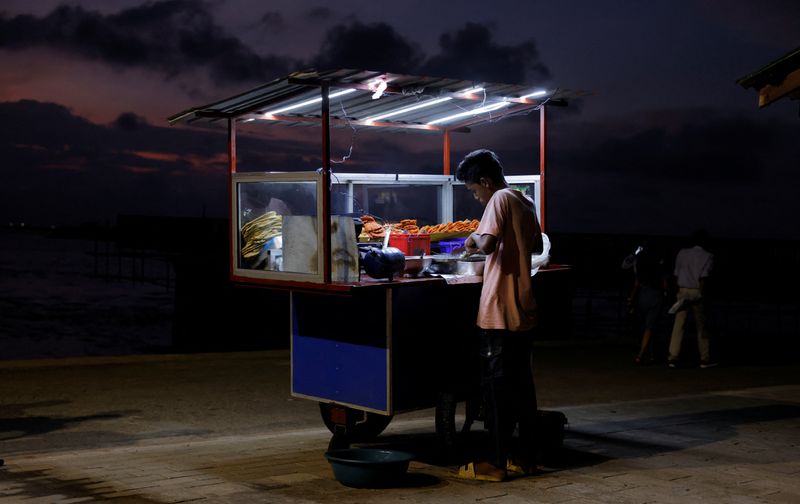(Reuters) -Sri Lanka's key inflation rate eased to 50.6% in February from 51.7% in January, the statistics department said on Tuesday, as food prices eased.
The Colombo Consumer Price Index (CCPI) reflected a reduction in food prices to 54.4% in February from 60% last month, but non-food inflation climbed to 58.8%, the Census and Statistics Department said in a statement. Sri Lanka has been struggling with soaring prices for over a year, largely caused by its worst financial crisis since it gained Independence from Britain in 1948. The CCPI acts as a lead indicator for broader national prices and shows how inflation is evolving in Colombo, Sri Lanka's biggest city.
"Inflation will continue to ease given the high base from last year. However, we expect inflation to reduce to single digits only towards the end of this year," said Dimantha Mathew, head of research for Colombo-based investment firm First Capital.
Sri Lanka's central bank is widely expected to hold policy rates for a fourth time when it meets this week as the country attempts to secure a $2.9 billion bailout plan with the International Monetary Fund (IMF), Mathew added.

Sri Lanka’s national consumer price inflation, which is released with a lag of 21 days every month, eased to an annual rate of 53.2% in January from 59.2% in December.
Sri Lanka has revised the base year for inflation indicators from 2013 to 2021, an official said.